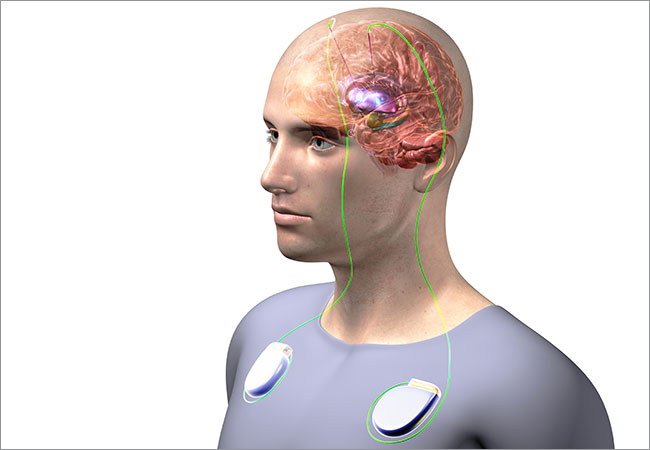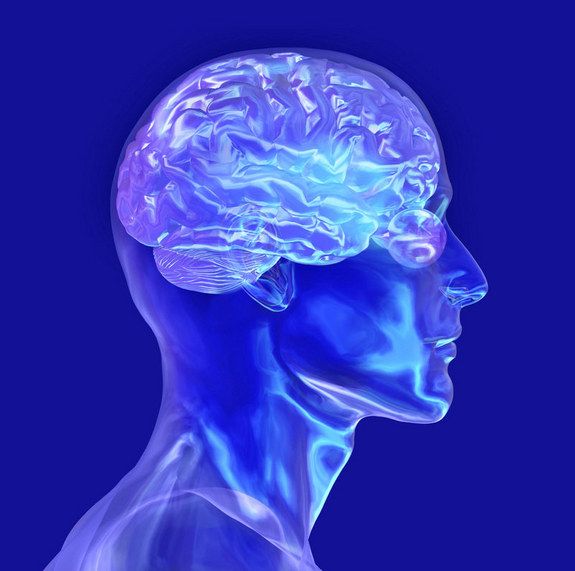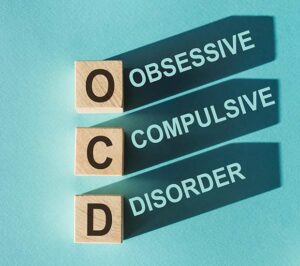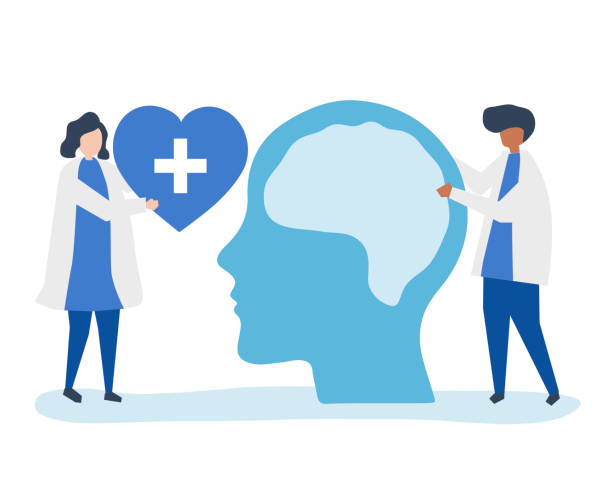If you or someone you know suffers from OCD, you may be wondering if there are any surgical options to help. While traditional therapy and medication can be effective for some, brain surgery for OCD may be an option for those who haven’t had success with other treatments.
In this article, we’ll explore everything you need to know about brain surgery for OCD, from how it works to whether or not it’s right for you.
Contents
What is OCD?
 OCD, or obsessive-compulsive disorder, is a mental health condition that affects about 2% of the population. People with OCD experience obsessions, which are unwanted and intrusive thoughts, and compulsions, which are repetitive behaviors that they feel compelled to do to relieve their anxiety. Furthermore, OCD can be a very debilitating condition, making it difficult for people to function in their day-to-day lives.
OCD, or obsessive-compulsive disorder, is a mental health condition that affects about 2% of the population. People with OCD experience obsessions, which are unwanted and intrusive thoughts, and compulsions, which are repetitive behaviors that they feel compelled to do to relieve their anxiety. Furthermore, OCD can be a very debilitating condition, making it difficult for people to function in their day-to-day lives.
There are a variety of treatment options available for OCD, but one of the most effective is brain surgery. Brain surgery was first developed in the early 1990s and is very effective in treating the condition. Furthermore, Studies have shown that brain surgery can provide complete relief from OCD symptoms in up to 80% of patients.
If you or someone you know suffers from OCD, brain surgery may be an option worth considering. It is important to speak with a qualified mental health professional. This is to discuss all of your treatment options and find the one that is best for you.
There are a variety of treatment options available for OCD, and the best course of action will be determined by your healthcare team based on the severity of your symptoms. In some cases, medication may be recommended as the first line of treatment. If you are considering brain surgery , it is important to consult with a psychiatrist or other mental health professional to get an accurate diagnosis and to discuss all of your treatment options.
Brain Surgery for OCD

If you or someone you know has OCD, you may have heard about brain surgery as a treatment option. This type of surgery is still relatively new and not well-known, so we wanted to provide some information about it.
Brain surgery for OCD involves implanting electrodes in the brain that deliver electrical stimulation to specific areas. This stimulation helps to break the cycle of OCD and can provide significant relief from symptoms.
The decision to undergo brain surgery is not an easy one, and it should only be made after careful consideration and consultation with a team of specialists. If you are considering this option, we encourage you to do your research and talk to your doctor to see if it is right for you.
Types of Brain Surgery for OCD

There are several types of brain surgery that can be used to treat OCD. The most common type is called deep brain stimulation (DBS). This involves the implantation of a device that sends electrical impulses to specific areas of the brain. DBS is effective in reducing OCD symptoms in some people.
Other types of brain surgery that have been used to treat OCD include:
• prefrontal leucotomy – a type of surgical procedure that involves cutting certain nerves in the frontal lobe of the brain. This was once a common treatment for OCD but is no longer performed due to the risks involved.
• cingulotomy – a type of surgical procedure that involves destroying a small area of the brain called the cingulate gyrus. This may be an option for people who do not respond well to other treatments.
• capsulotomy – a type of surgical procedure that involves destroying a part of the brain called the internal capsule. This may be an option for people who do not respond well to other treatments.
The procedure of Brain Surgery
 Many people with OCD (Obsessive Compulsive Disorder) live relatively normal lives, with the help of therapy and medication. But for some, the symptoms are so severe that they interfere with everyday activities. In these cases, brain surgery may be an option.
Many people with OCD (Obsessive Compulsive Disorder) live relatively normal lives, with the help of therapy and medication. But for some, the symptoms are so severe that they interfere with everyday activities. In these cases, brain surgery may be an option.
Brain surgery for OCD is still considered experimental, but it has shown to be effective for some people. The most common type of brain surgery for OCD is called cingulotomy. This involves making a small hole in the skull and inserting a probe into the cingulate gyrus. This is the part of the brain thought to be responsible for OCD.
The surgeon then destroys a small part of the brain tissue with heat or lasers. This can help to reduce or even eliminate OCD symptoms. However, it is important to note that brain surgery is a very serious procedure with potential risks and side effects. Therefore, it should only be considered as a last resort after all other treatment options have been exhausted.
If you or someone you know is considering brain surgery for OCD, it is important to speak with a qualified mental health professional to discuss all of the risks and benefits involved.
Pros and Cons of Brain Surgery for OCD
 There are a lot of things to consider before undergoing any type of surgery, especially brain surgery. In this, we’ll explore the pros and cons of this surgery for OCD.
There are a lot of things to consider before undergoing any type of surgery, especially brain surgery. In this, we’ll explore the pros and cons of this surgery for OCD.
On the plus side, brain surgery can be very effective in treating OCD. In some cases, it can even be a complete cure. It can also be an option for people who have not had success with other treatments.
However, there are also some potential downsides to brain surgery for OCD. The risks of any surgery are always present, and there is always the potential for complications. There is also the possibility that the surgery will not be successful in treating OCD.
Brain surgery for OCD is a decision that should only be made after careful consideration and consultation with a qualified medical professional. It’s not a decision to be made lightly, but it can be a very effective treatment option for some people with OCD.
How to Decide if It Right for You?
If you or a loved one suffers from OCD, you may be wondering if brain surgery is a viable treatment option. Unfortunately, there is no easy answer. The decision to pursue brain surgery should be made only after careful consideration and consultation with a qualified medical professional.
There are a few things to keep in mind when deciding if brain surgery is right for you or your loved one. However, First, it is important to understand that brain surgery is a serious procedure with potential risks and complications. Second, brain surgery may provide some relief from OCD symptoms. Furthermore, It is not a cure and does not guarantee that symptoms will not return. Finally, brain surgery is not appropriate for everyone suffering from OCD. It should only be considered as a last resort after all other treatment options have been exhausted.
If you are considering brain surgery for OCD, we encourage you to speak with your doctor about all the potential risks and benefits. Only through an open and honest discussion with your medical team can you make an informed decision about whether or not brain surgery is right for you.
Alternatives To Brain Surgery
There are many different treatment options for OCD, and brain surgery should always be a last resort. Furthermore, Some common alternatives to brain surgery include:
– Cognitive behavioral therapy: This type of therapy can help patients learn how to change their thinking patterns and behaviors.
– Exposure and response prevention therapy: This type of therapy helps patients confront their fears and learn how to control their reactions to them.
– Medication: Furthermore, Many different types of medication can be effective in treating OCD.
Conclusion
This article has given you a better understanding of what to expect if you or a loved one is considering brain surgery for OCD. While it’s certainly not a decision to be made lightly, it can be an effective treatment for those who have not seen results from other methods. If you’re considering brain surgery, be sure to talk to your doctor about all of your options and make sure you understand the risks involved.
Hope this article was of help to you! If you are suffering from OCD, you may seek help from Therapy Mantra. We have a team of highly trained and experienced therapists who can provide you with the tools and skills necessary for overcoming OCD. Contact us today to schedule an online therapy or download our free OCD treatment app on Android or iOS for more information.


